
In 1894, when Nicholas II became Tsar of Russia, he was the wealthiest man on the planet. Worth 240 billion pounds in today's money, he was richer than any modern-day billionaire. Unsurprisingly, the Russian royal family spent lavishly, and were served by several official court jewellers. But names like Hahn, Ovchinnikov and Bolin have been largely forgotten. Only one court jeweller - the House of Fabergé - has achieved longevity, becoming a byword for absolute luxury.
Founded in St Petersburg in 1842 by Gustav Fabergé, the firm rose to prominence under the directorship of his son, Peter Carl Fabergé. Kieran McCarthy, director of Wartski, the London-based firm which specialises in the work of Fabergé, explains why he came to eclipse his competitors: 'Carl Fabergé's genius was that he understood the desires and interests of his patrons. These were very wealthy, very spoiled people who could have the absolute best of anything they wanted. They already had fabulous jewellery. It didn't really excite them. But the skill, quality and ingenuity of Fabergé's designs sent shivers down the spine. Each was unique, like a work of art. His patrons recognised Fabergé as the greatest craftsman of his generation.'
The renowned Imperial eggs have also fuelled Fabergé's legendary status. At Easter an important occasion in the Orthodox religious calendar - even the poorest peasants exchanged painted or wooden eggs. In 1885, Tsar Alexander III commissioned Fabergé to create a special Easter present for his wife. This first egg followed a design specified by the Tsar - the plain white enamel exterior twisted open to uncover a series of surprises: first a yolk, made of gold, which contained a golden hen with ruby eyes. Hidden inside the hen was a diamond miniature of the Imperial crown, which itself opened to reveal the final surprise: an egg-shaped ruby pendant.
هذه القصة مأخوذة من طبعة April 2023 من Homes & Antiques.
ابدأ النسخة التجريبية المجانية من Magzter GOLD لمدة 7 أيام للوصول إلى آلاف القصص المتميزة المنسقة وأكثر من 9,000 مجلة وصحيفة.
بالفعل مشترك ? تسجيل الدخول
هذه القصة مأخوذة من طبعة April 2023 من Homes & Antiques.
ابدأ النسخة التجريبية المجانية من Magzter GOLD لمدة 7 أيام للوصول إلى آلاف القصص المتميزة المنسقة وأكثر من 9,000 مجلة وصحيفة.
بالفعل مشترك? تسجيل الدخول
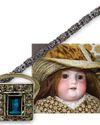
Lisa Coppin
The Cotswold Company’s chief creative officer shares the pieces that mean so much to her

TRAVEL
Six of the best pineta, plus a festive trip to Covent Garden. Review of The Orange, Belgravia by Katie Pike, travel stories
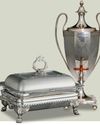
OLD SHEFFIELD PLATE
Stumbled upon by chance, this ingenious material was a more affordable option than solid silver, and well-preserved examples are particularly desirable today
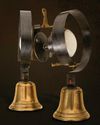
Merrily on high
Summoning servants since the 1700s, bell boards create instant English country-house style (even if you don't have any servants). Emma Longstaff dons her pinny

Let it snow
Nostalgic, magical and highly collectable, snow globes are curious objects of wonder that never fail to instil joy
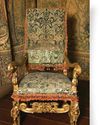
Velvet Crush
Once the preserve of the wealthy, velvet finally touched all levels of society, thanks to advances in its production process

Celebrating in the Stable
Antiques dealer Julia von Hülsen specialises in Gustavian pieces - all of which look perfectly placed in her German home
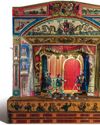
THE SHOW MUST GO ON
Victorian toy theatres charming and exquisitely designed miniature worlds have inspired theatre royalty for decades. Today, the tradition is being kept alive by a small but talented network of makers

NICHOLAS LEES
The ceramic artist talks to Dominique Corlett about new ways of working with clay and blurring the edges of solid objects

Candy CHRISTMAS
Pastel hues, vintage decorations and bowls of sweet treats: the festive run-up is gloriously joyful at Bettina Færgeman's historic Copenhagen apartment, where there's an emphasis on entertaining...